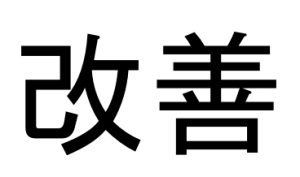Kaizen
Getting better at getting better
Kaizen
Getting better at getting better

Kaizen
Kaizen (改善) is a Japanese word meaning “improvement”. It is formed from Kai (改), meaning “change” and Zen (善) meaning “good”. It is often used to describe a business philosophy or system that is based on making positive changes on a regular basis, as to improve productivity.
The term was coined in the 1950’s during the post-World War II restoration of Japan. The use of the word in English, in a business context, is widely accredited to Masaaki Imai and his book “Kaizen: The Key To Japan’s Competitive Success”.
When applied to business productivity, the word refers to activities that continually improve all functions and involve employees at all levels.
Kaizen at Europa Technologies
Europa Technologies has embraced Kaizen as part of its competitive strategy. Improvements, large and small, are made on a continual basis to the company’s products, services and operations in general. The philosophy drives innovation and empowers us to exceed customer expectations with a viewpoint beyond market trends and emerging technologies.
Our implementation of Kaizen can be broken down into five steps:
- Standardise – Define a repeatable process
- Quantify – Measure/capture data
- Compare – Compare with requirements
- Innovate – Create/refine process to improve efficiency, re-quantify, re-standardise.
- Repeat – Go back to step 1
It is worth noting that Kaizen is not change for change’s sake! It is a deliberate, constant improvement and changes that do not bring a tangible reward are not made.
Further Information
To learn more about Europa Technologies and the use of this business practice, please contact Warren Vick, Founder & Director (wvick@europa.uk.com)

